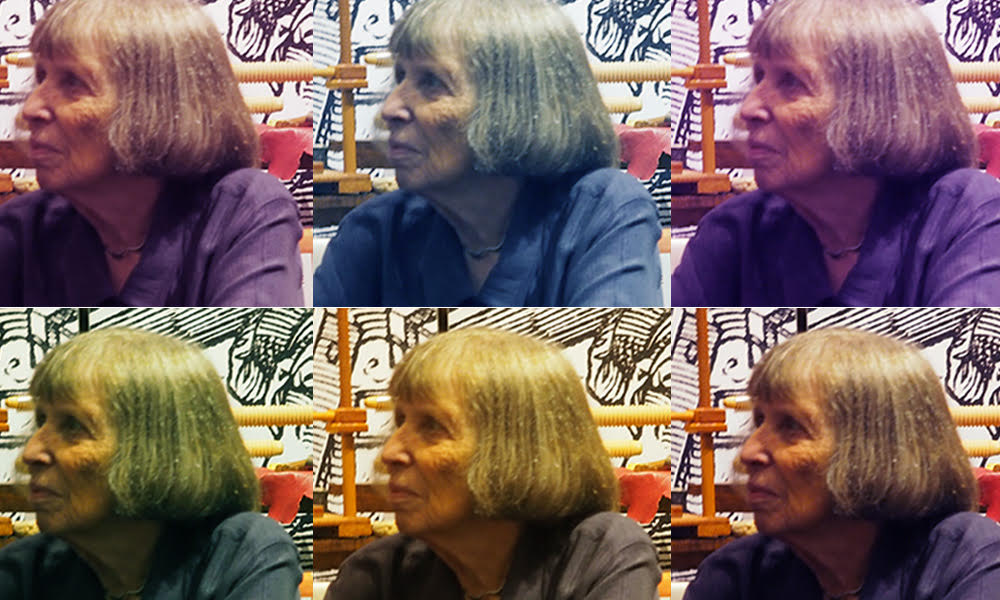The following poems by Linda Pastan were printed in Moment between 1975 and 2015.
A SHORT HISTORY OF JUDAIC THOUGHT IN THE TWENTIETH CENTURY
The rabbis wrote:
although it is forbidden
to touch a dying person,
Nevertheless, if the house
catches fire
he must be removed
from the house.
Barbaric!
I say,
and whom may I touch then,
aren’t we all
dying?
You smile
your old negotiator’s smile
and ask:
but aren’t all our houses
burning?
To see this poem in its original context, click here.
POET
At his right hand
silence;
At his left hand
silence;
ahead of him
the yahrzeit glass;
behind him
silence;
and above his head
all the letters of the alphabet
to choose from.
To see this poem in its original context, click here.
FRESCO
In Masaccio’s “Expulsion
From the Garden”
how benign the angel seems,
like a good civil servant
he is merely enforcing
the rules. I remember
these faces from Fine Arts 13;
I was young then
to think that the loss of innocence
was just about Sex.
Now I see Eve covering
her breasts with her hands
and I know it is not to hide them
but only to keep them
from all she must know
is to follow
from Abel on one,
Cain on the other.
To see this poem in its original context, click here.
LIFE AND LITERATURE
In the middle of the century,
in the middle of the middle class
I stood on a dressmaker’s wooden stool
fixed forever at twelve
in a constellation
of silver pins.
And once I kissed the milliner’s shabby son
while my mother tried on hats.
We saw her face rising
beyond the door whitened in anger,
circled in planetary felt—
he wore a yarmulka.
In the shtetl I would have died
three times in childbirth.
Instead washed clean by soap
Opera, me peasant cheekbones rouged
in city lights, they told me:
Rise and Shine.
Tonight I listen to Isaac Bashevis Singer
speak in the Yiddish accent of my grandfather.
How do I write of ghettos
who feel at home in drafty English houses
sipping my tea from porcelain cups
instead of jelly glasses?
O sing a song of assimilation—
that oldest lullaby
I have tried to forget the words,
but my genes are suspended
Like half note down
its strict, musical staff.
To see this poem in its original context, click here.
A NAME
David means beloved.
Peter is a rock. They name me
Linda which means beautiful
in Spanish—a language
I never learned.
Even naked
we wear our names.
In the end we leave them behind
carved into desktops
and gravestones, inscribed
on the flyleaf of Bibles
where on another page
God names the generations
of Shem, Ham, and Japheth.
Homer cast a spell with names
giving us the list
of warriors and their ships
I read my children to sleep by.
There are as many name underfoot
as leaves in October;
they burn as briefly on the tongue,
and their smoke could darken
the morning sky to dusk.
Remember the boy of seven
who wandered the Holocaust alone
and lost not his life
but his name? Or the prince whose name
was stolen with his kingdom?
When I took my husband’s name
and fastened it to mine
I was as changed
as a child
when the priest sprinkles it
with water and the name
that saves it a place in heaven.
My grandfather gave me a name
In Hebrew I never heard,
But it died with him.
If I had taken that name
who would I be,
and if he calls me now
how will I know to answer?
To see this poem in its original context, click here.
DURING VISITING HOURS
There was something about the aide’s voice—
not gentle but comforting
in its very plainness
(like Shaker furniture
or glass milk bottles
on a stoop)
that opened my mother’s eyes
to the quickly fading flowers
in my hand—the color
of spots of blood on the sheet
the nurses had somehow missed.
The smell
of anesthetic lingered,
like the scent of my dead father’s
aftershave, but the voice was asking
such a simple question (tea
or some juice?) that my mother politely
returned to life and answered.
To see this poem in its original context, click here.
THE GRANDFATHERS
They hid in barber shops,
in steam baths,
and on the benches
of small concrete parks,
spending their few
remaining coins of laughter
on each other, swallowing
Humiliation, like schnapps,
in one gulp.
But tears were there
like secret tidal pools
doomed by salt. Though
once they had discarded
the villages of their fathers,
here they remained strangers,
choosing the enigmatic life
of fish or bees: silence
or that low dangerous hum.
To see this poem in its original context, click here.
WIDOW’S SONG
Time has had its way with me—why not?
The world will scarcely notice when I leave;
The weather will continue—cold or hot—
the wind may keen, but elements don’t grieve.
This body that I have to leave behind
is nothing that I ever valued much—
The nose too large, the skin a drying rind,
each leg, once shapely, now a simple crutch.
If only I could take a book along,
a glass of wine—champagne would be the best.
If only I could right all I’ve done wrong,
the grave might simply be a place to rest,
The clock reveals its round, impassive face.
Life was a mystery; Death a commonplace.
To see this poem in its original context, click here.

